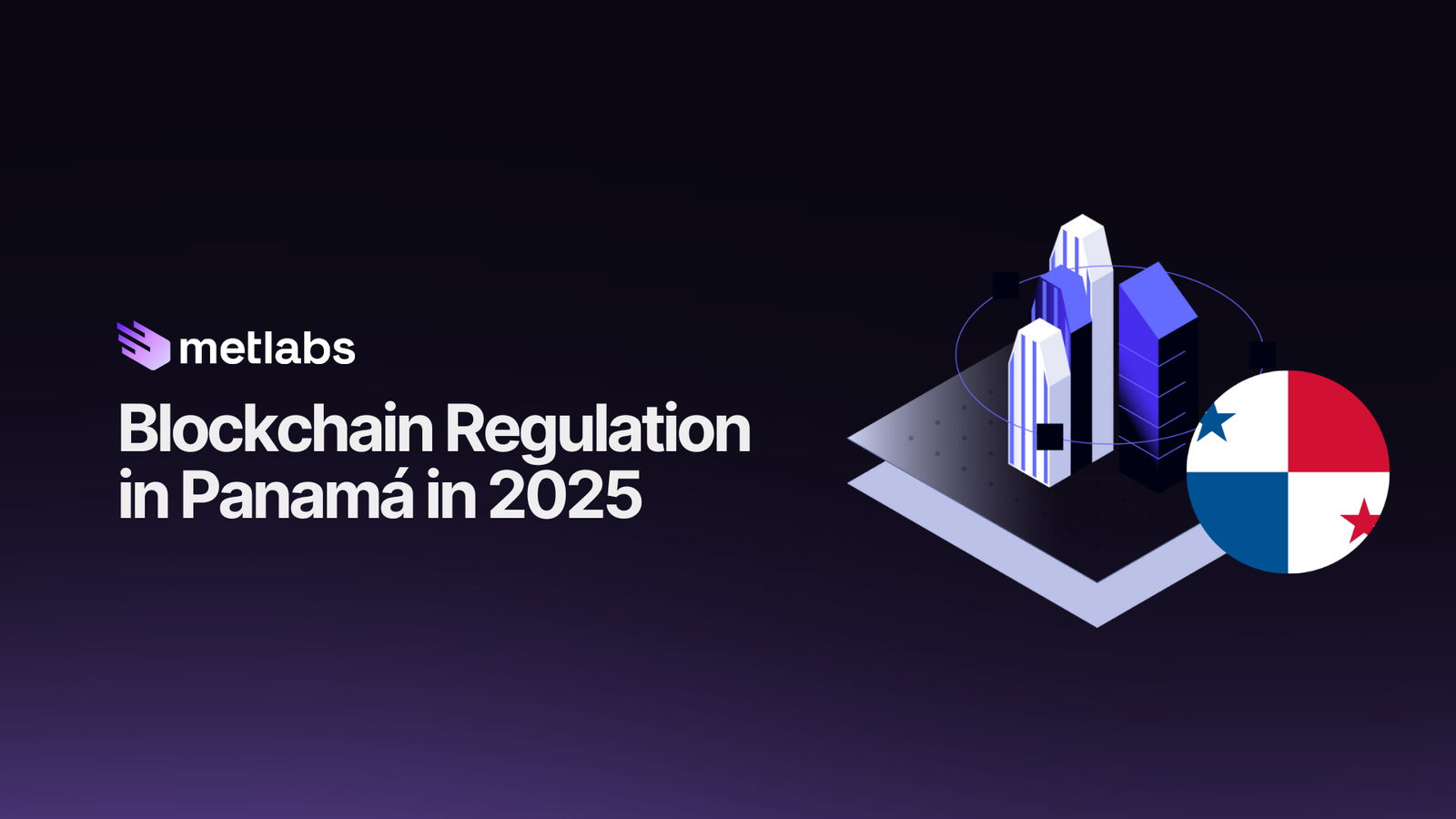The adoption of blockchain technology and asset tokenization is advancing at a rapid pace, but the real engine driving its global development is the existence of a clear, consistent and innovation-friendly legal framework.
Some countries have already established themselves as regulatory benchmarks, establishing specific rules for cryptoassets, DLT infrastructures and token issuance with legal backing. In this article we show you relevant information about blockchain regulation in Panama, which you can use as a guide if you are looking to operate internationally or evaluate different strategic locations.

Current legislation on blockchain and virtual assets in Panama
Law No. 23 of 2015 (Prevention of Money Laundering).
Establishes the general framework for the prevention of money laundering and financing of terrorism. Includes VASPs as regulated entities. Requires KYC controls, monitoring and reporting of suspicious transactions to the FAU. Complies with FATF international standards.
UAF Resolutions on VASP
The FAU has strengthened supervision of regulated entities in 2024, issuing guidelines for VASPs. There is no formal registration or specific licensing regime for VASPs. The main obligations are to comply with AML/CFT regulations and report suspicious transactions.
Communications from the Superintendency of Banks
The Superintendency of Banks reiterates that cryptoassets do not have legal tender status in Panama. Warns about the risks of their use in the financial system. Requires internal controls to regulated entities. Maintains a restrictive and warning stance.
Tokenization makes it possible to digitally represent real-world assets through blockchain, but for it to have legal value, it is essential that there is a regulatory framework that recognizes this operation. Panama adopts its own approach, establishing specific rules for the issuance, custody or trading of tokens. In this block we explain how asset tokenization is regulated from a legal point of view, taking an advanced jurisdiction such as Panama as an example.
Regulation of asset tokenization in Panama
Asset tokenization in Panama does not yet have a specific regulatory framework. Projects that tokenize securities may be subject to the supervision of the Superintendencia del Mercado de Valores (SMV) if the structure of the token qualifies as a negotiable security, applying the general provisions on public offering, authorization and transparency.
On the other hand, tokens representing non-financial assets are structured under private law, with no specific DLT regulations. Blockchain registries have contractual validity, but no formal recognition as an official registration system in the real estate or commercial sphere. Transactions with these tokens must comply with current tax, civil and consumer protection provisions.
Currently, Panama does not have regulatory sandboxes nor does it participate in DLT pilot regimes. However, the evolution of the Cryptoassets Bill, together with the resolutions issued by the UAF and the inter-institutional work of the Ministry of Economy and Finance, augur a clearer regulatory environment in the short term. The approval of this regulation could facilitate the development of tokenization projects with greater legal certainty for investors and issuers.
Regulatory agencies and authorities for digital assets in Panama
Financial Analysis Unit (UAF)
The UAF is the authority responsible for the prevention of money laundering and terrorist financing in Panama. It supervises compliance with AML/CFT obligations by VASPs, manages registries of regulated entities and oversees the reporting of suspicious transactions. However, there is no formal licensing regime or specific registry for VASPs.
Superintendency of Banks of Panama
The Superintendency issues guidelines and warnings on crypto-asset transactions in the Panamanian financial system. It supervises banking entities so that they adopt controls over transactions linked to virtual assets and evaluates the risks derived from their use. It does not directly regulate or supervise VASPs or crypto-asset exchanges.
General Directorate of Revenues (DGI)
The DGI is the competent tax authority in Panama. It defines the tax treatment of transactions with cryptoassets, oversees compliance with tax obligations and supervises the declaration of income from activities with virtual assets, although there are currently no specific tax regulations for cryptoassets.
Launching a business based on digital assets requires more than just technology: it is also necessary to comply with legal requirements such as licensing, registration and regulatory obligations. These conditions ensure that the business model is viable and sustainable over time, and that it complies with transparency and fraud prevention standards. In this section we explore what licenses are usually required and what compliance criteria blockchain companies operating in Panama must follow.

What licenses and requirements are needed to operate with cryptoassets in Panama?
VASP Panama Registry
There is no specific formal license for VASP in Panama, but it is mandatory to register as a regulated entity with the UAF, according to Law No. 23 of 2015 and its updates. This registration requires implementing AML/CFT controls, reporting suspicious transactions and maintaining internal compliance policies. There is no sectoral licensing regime or formal public registry for exchanges or crypto platforms.
AML/KYC Compliance
Compliance with AML/KYC requirements is mandatory for VASPs in Panama. It includes customer identification and verification, continuous monitoring of transactions, risk analysis and reporting of unusual or suspicious transactions to the UAF, in accordance with current regulations. It also requires the designation of a compliance officer and staff training.
Tax obligations
Crypto-asset activities are subject to Panamanian tax regulations. Taxpayers must declare the income derived from these operations before the DGI and comply with the corresponding tax obligations. In addition, they must keep adequate accounting records to support their declarations.
Are you exploring developing your blockchain project in Panama?
At Metlabs we help companies like yours and offer comprehensive support in the development of blockchain projects and tokenization of assets such as real estate, carbon credits, commodities, intellectual property, financial instruments, franchises and more, fully aligned with blockchain regulation in Panama and international regulatory standards.
Contact us and find out how we can help you meeting all your business model needs, from technical validation and structuring to design, development and implementation of custom blockchain solutions, ready to scale from day one.



